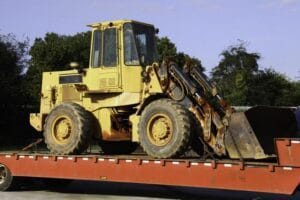Frequently Asked Questions
What are the benefits of using AFB in production?
The benefits of using AFB in production include enhanced efficiency, reduced material waste, and improved product quality. By integrating AFB, manufacturers can streamline processes and foster sustainable practices, ultimately leading to cost savings and environmental benefits.
What is the difference between AFB and traditional manufacturing?
The difference between AFB and traditional manufacturing lies in AFB's focus on advanced technologies, precision engineering, and specialized production methods tailored for military applications, whereas traditional manufacturing typically emphasizes broader, more standardized processes for various industries.
What is the role of AFB in modern manufacturing processes?
The role of AFB in modern manufacturing processes is crucial, as it serves as a strategic hub for advanced production techniques, ensuring efficiency, innovation, and quality in manufacturing operations while supporting national defense initiatives.
How does AFB increase production efficiency in factories?
AFB increases production efficiency in factories by implementing advanced manufacturing techniques, optimizing workflows, and utilizing state-of-the-art technology to streamline operations, reduce waste, and enhance overall productivity.
Can AFB be used in small-scale manufacturing operations?
AFB can indeed be utilized in small-scale manufacturing operations. Its adaptability allows for efficient production processes while maintaining the necessary regulatory compliance, making it a suitable choice for businesses looking to optimize their manufacturing capabilities.
What are the advantages of AFB over traditional fabrication?
The advantages of AFB over traditional fabrication include improved efficiency, reduced waste, and enhanced precision in production, resulting in faster project turnaround times and lower overall costs for manufacturing processes.
What are the most common materials used in AFB manufacturing?
The most common materials used in AFB manufacturing include advanced alloys, composite materials, and high-strength plastics, which are essential for ensuring durability, structural integrity, and lightweight characteristics in various aerospace applications.
What are the potential risks associated with AFB manufacturing?
The potential risks associated with AFB manufacturing include environmental hazards, regulatory compliance challenges, and safety concerns related to hazardous materials, which may affect both worker safety and operational efficiency.
What are the common applications of AFB in manufacturing?
The common applications of AFB in manufacturing include the production of aerospace components, automotive parts, and electronic assemblies, where their lightweight and durable properties enhance efficiency and performance in various industries.
How does AFB enhance product quality in manufacturing?
AFB enhances product quality in manufacturing by implementing rigorous quality control processes, utilizing advanced engineering techniques, and ensuring compliance with strict industry standards, which collectively lead to superior product outcomes and reliability.
How does AFB reduce waste in manufacturing industries?
AFB reduces waste in manufacturing industries by implementing lean manufacturing techniques, optimizing resource usage, and enhancing production efficiency, ultimately minimizing excess material and improving overall sustainability practices.
How does AFB improve product customization in manufacturing?
AFB enhances product customization in manufacturing by leveraging advanced technologies and flexible production processes, enabling tailored solutions that meet specific client requirements while maintaining efficiency and quality throughout the manufacturing lifecycle.
How does AFB improve product consistency in manufacturing?
AFB improves product consistency in manufacturing by implementing rigorous quality control processes, utilizing advanced technology for precision, and standardizing operational procedures to ensure uniformity across production lines. This approach minimizes variations and enhances overall reliability.
Are there any environmental benefits to using AFB in manufacturing?
The environmental benefits of using AFB in manufacturing include reduced carbon emissions and lower energy consumption, which contribute to a more sustainable production process and minimize the ecological footprint of manufacturing activities.
How does AFB affect the supply chain in manufacturing?
The effect of AFB on the supply chain in manufacturing is significant. It streamlines logistics and enhances efficiency by providing critical infrastructure, thereby reducing lead times and fostering reliable delivery of materials and products essential for manufacturing processes.
Are there any regulatory requirements for AFB manufacturing?
The regulatory requirements for AFB manufacturing include compliance with federal, state, and local environmental standards, safety protocols, and facility operating permits to ensure adherence to legal guidelines and operational safety.
How does AFB reduce labor costs in manufacturing industries?
AFB reduces labor costs in manufacturing industries by implementing automation technologies, optimizing workflows, and enhancing worker efficiency through targeted training, resulting in significant reductions in operational expenses while maintaining productivity.
What is the future outlook for AFB manufacturing technology?
The future outlook for AFB manufacturing technology is promising, with advancements in automation, materials science, and environmental sustainability driving efficiency and effectiveness in production processes. This evolution aims to enhance the capabilities of defense manufacturing while meeting regulatory standards.
Can AFB be used in combination with other manufacturing techniques?
AFB can indeed be used in combination with other manufacturing techniques, allowing for enhanced efficiency and adaptability in the production process. This integration can optimize resource utilization and improve overall product quality.
What is the current market trend for AFB manufacturing?
The current market trend for AFB manufacturing indicates a growing demand driven by advancements in technology, increased defense budgets, and a focus on modernization. This trend highlights the importance of efficient and innovative manufacturing solutions in the aerospace sector.





